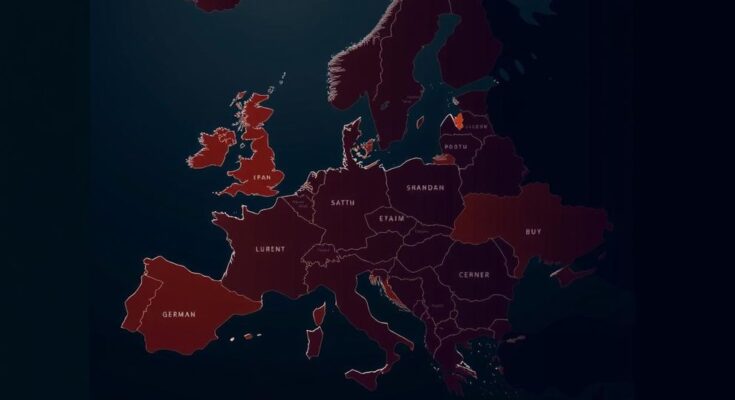Germany is set to hold snap elections on February 23 due to the collapse of Chancellor Olaf Scholz’s coalition government. The decision follows expected political shifts and seeks to establish stability amidst significant economic challenges. Key political parties have agreed on the election date, which will see campaigns conducted during winter, potentially impacting voter turnout.
Germany is poised to conduct snap elections on February 23, following the dissolution of Chancellor Olaf Scholz’s three-party coalition. This decision, reached between the two main political factions, is a response to the pressing need for political stability and leadership within the nation. The election timeline was prompted by the anticipated loss of a confidence vote for Scholz on December 16, after which President Frank-Walter Steinmeier will have a 21-day window to dissolve the Bundestag and initiate the elections. The convergence on February 23, a proposal supported by Steinmeier, seeks to balance the request for a swift electoral process by the conservative opposition and Scholz’s preference for more time for preparations. This political shift comes amid a challenging economic backdrop characterized by inflation, the ongoing conflict in Ukraine, and geopolitical uncertainties linked to the United States’ political landscape. Scholz’s recently dissolved coalition was historically significant as Germany’s first successful tripartite alliance, yet it unraveled due to fundamental disagreements over economic policies, culminating in the exit of the Free Democratic Party. Looking forward, the outcome of the impending elections bears significant implications for Germany and potentially the European Union as a whole. The leading CDU/CSU alliance, currently favored in the polls, may struggle to form a definitive majority without collaboration from smaller parties. The populist rise of the Alternative for Germany (AfD) presents additional complexity as traditional parties continue to distance themselves from potential coalitions with the far-right faction. The upcoming elections will take place during a winter campaign period, a factor that could affect voter turnout compared to more favorable seasons.
The backdrop to the upcoming snap elections in Germany is characterized by recent political turmoil following the collapse of Chancellor Olaf Scholz’s coalition government. Formed in late 2021, this alliance included the Social Democrats, Greens, and Free Democratic Party but failed to sustain itself due to disputes over economic policy. The resulting governance instability occurs during a time of economic strain, compounded by Russia’s invasion of Ukraine and changing international political dynamics, particularly as the US prepares for a new administration under Donald Trump. The elections are critical not only for Germany’s immediate political landscape but also for the stability and future of the European Union amid its ongoing challenges.
In conclusion, the necessity for Germany to hold snap elections on February 23 arises from the dissolution of a coalition government amidst a precarious economic climate. With significant implications for national governance and European politics, the outcome of these elections will be pivotal. Observers will watch closely to see how political parties adapt their strategies to engage voters during the winter campaign and whether they can form a stable government that addresses public concerns and international challenges.
Original Source: www.aljazeera.com




